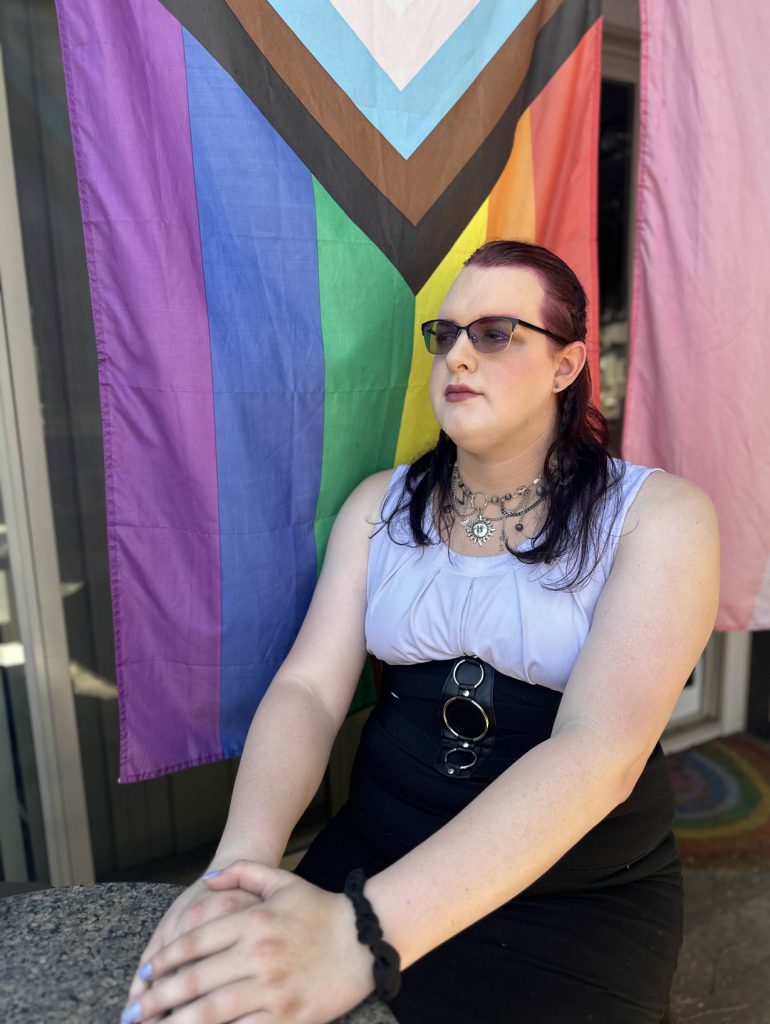As Pride Month nears an end, CDFA presents Q&A with Siobhan Reid, a five-year employee with the agency’s IT service desk. Siobhan discusses some of the dynamics of gender transition in the workplace as well as personally.
How long has your journey been? Where are you in your transition?
I am four years into the rest of my life! Like a lot of trans people, I realized that I was trans during the worst of the COVID-19 pandemic – though in my case, I didn’t have an extended period of isolation from work and peers, since the Service Desk Office here at CDFA did not start teleworking until late 2021. In terms of where I am with my transition, that depends on how you mark progress in a life-long state of change! There are, I think, three different kinds of transition happening all at once. The first is an internal, mental one where a trans person realizes they can just be what feels right. I’ve completed that, and it led to the other two: social and physical. Social transition is probably the most difficult and vulnerable form of it, since it involves telling other people to use a different set of pronouns for you, a different name, dressing differently, learning new and different body language and mechanics, and so on. There are a lot of moving parts. Physical transition is probably the one that most cisgender people think of when they talk about transition, and while there are some one-time parts of it – surgeries, mostly – the reality is that it’s an ongoing process. Bodies change as we age, and change differently based on their hormonal balance, genetics, and the environment they’re in.
What has your experience been like with a network of family, friends and colleagues who have known you before and during your transition?
It’s been a lot easier and much more pleasant than I expected. Every trans person is afraid of rejection from their family, friends, or colleagues; I’m very lucky to have not experienced any of that loss, and to have all three of those groups be supportive and accepting. I’m also very aware of that luck, because I have friends and acquaintances within the trans community who have been rejected or found it necessary to cut off contact with people who become hostile.
Do you feel safe and supported in your community?
Generally, yes! Sacramento is very queer-friendly, and especially friendly to trans or other gender-expansive folks. We typically make up about 1% of the population in a broader area, and last I knew, about 10% of people the Sacramento area are trans or otherwise gender-expansive. Safety in the area is granular, though, and there are areas in the region I try to avoid.
Do you feel supported in the workplace?
Absolutely. I’m very glad to have had the support of the staff in the Office of Civil Rights, as well as management staff in the Office of Information Technology Services, from the day I decided to come out to my colleagues to today and into the future. Everyone within CDFA has been excellent to me, which I deeply appreciate, and I haven’t been deadnamed or misgendered in quite a while! I’m also proud to have led the way on how OITS handles name changes for trans people in our systems.
What would you like others to know about your transition?
Not every transition is like mine. I’m taking it at a pace I’m comfortable with, and I’m open about it because I don’t think it’s something I need to hide. Being visible means other trans people who are fresher to their identity can see someone else just living their life.
NOTE — Here is more information on several terms used in this post.
Transgender: denoting or relating to a person whose gender identity does not correspond with the sex assigned for them at birth.
Gender-Expansive: Individuals who do not identify with traditional gender roles and otherwise not confined to one gender.
Cisgender: Denoting or relating to a person whose gender identity corresponds with the sex assigned for them at birth; not transgender.
Queer: Denoting or relating to a sexual or gender identity that does not correspond to established ideas of sexuality and gender, especially heterosexual norms.
Deadnamed: Calling a transgender person by their birth name when they have changed their name as part of their gender transition.



